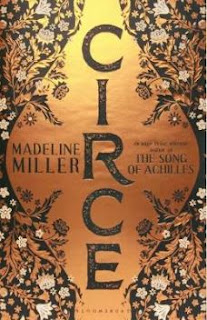Wowza.
Holly Bourne's How Do You Like Me Now? has been on my reading list for a while, but things just kept coming in so I had to postpone it. So I took it to bed with me last Saturday night, around half past 10 - and the next time I looked up somehow it was nearly 4am and I only had 100 pages left. I decided to save them because I was having such a good time that I thought Sunday me should get a little fun too.
The book is about Tori Bailey, successful author of a self-help book, 31 years old, flat (and cat) owner, proud girlfriend of a gorgeous man. But everything's not alright. Her best friend and companion meets someone and soon becomes pregnant; everyone is getting married, popping out babies and looking fabulous on social media. So is Tori, for that matter, but we see her point of view - the deceit, the need for validation, the lying to one's self about happiness. As she uncovers what it's like to enter her thirties she helps us witness how everything around her is changing. And really, for anyone around 20-30 years, this won't be a surprise - the surprise is how the hell Holly Bourne knows exactly what I'm thinking.
What did I like about it?
I think what resonated with me the most is how truthfully Holly is able to describe being my age - I'm right in the middle of this age group, and this book almost read like a diary. She finds the thoughts and feelings that are characteristic; the worries and the concerns of our generation. The lies behind social media and the hidden messages in our conversations. And most of all, that fear. That gripping fear that, if you were to change something now, you'd have to start all over again - and think of all that time wasted...
I've never felt a piece of fiction to be so shockingly true - it's almost like she hit a nerve in me. It's a motivating story too, in a way, and almost reads like a self-help book; or, at least, a self-reflection book.
Besides, Holly has a fabulous writing style with surprisingly strong metaphors (I don't mean it's surprising from her; I mean it's surprising in general). The thing is, book stores might say this is women's fiction, and it is, on some level. But it's smart. It's so damn smart. This type of insight is rare.
What was I not massively fond of?
I think the one thing that other critics have also pointed out were the occasional insertions of photographs or imitation-social media posts. Although no, the posts didn't feel out of place - just the photos. At one point, a 'photo' of Tori's best friend is included and, if you're easily influenced, this could wipe out the image of her in your head in a second, and you won't be able to imagine her any differently. (I'm a strong, independent woman though and I won't do what you tell me.)
Another thing I'm wondering is whether this book would resonate as much with people outside of this age bracket as it did with me. Come to think of it, women - most likely. These topics are not age-defined. With men? Perhaps not so much. But hey boys, if you want an intimate glimpse into your 'difficult' or 'crazy' girlfriend's head, give it a go. You might be surprised about how much you can learn.
Overall...
I think I need to re-read this book already, and I only just finished it. You know when you go for a run and at the end you can't really remember a single moment of it, you just know that you feel pretty good now? That's how I was with Holly's book, except I remember that it was incredibly brilliant, funny and honest.
She has astonishing talent and I'm very much hoping her next book will be just as good.
Thank you for answering questions that I'm too afraid to answer myself.
10/10 (yep!)





